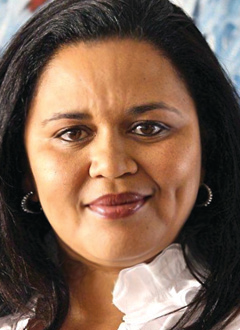
Zoe Titus is a former print journalist who has branced out into media development work in which she has been engaged with for the last 16 years. She currently works for the Media Institute of Southern Africa (MISA) which is the premium media freedom and freedom of expression advocacy organisation in southern Africa. Moving from mainstream media to media development, and coming to realise that many media development organisations work on an assumption that all journalists/media professionals understand and support press freedom. I have developed and participated in some exciting campaigns which have led to shaping continental, sub-regional and national laws and policies. Internet governance is still a relatively new issue in our organisation. I’m hoping to increase my knowledge on this issue with the full intention of developing an internal organisational strategy for MISA on the matter. Contribute … my specialised knowledge of media and the information sector.
This blog post is based on the practicum session of AfriSIG, where participants represent different stakeholder groups in a multistakeholder Internet Governance process.
ADDIS ABABA, ETHIOPIA, 3 September 2015 – Business stakeholders participating in the 2015 Africa School on Internet Governance (AfriSIG2015) today announced their support for net neutrality and regulated zero rating.
A multi-stakeholder plenary, chaired by the Association for Progressive Communication’s Jan Moolman and former Head of the NEPAD e-Africa Programme Edmund Katiti, heard draft positions from business, technical, government and civil society stakeholders on these complex internet governance issues. The final texts of the various positions remain under comment until tomorrow.
Zero-rating refers to the practice of offering free access to certain popular online services for customers of particular mobile networks. Net neutrality on the other hand suggests that Internet service providers should enable access to all content and applications regardless of the source, and without favouring or blocking particular products or websites.
Business stakeholders commenced deliberations with breakfast today. It immediately became clear that that the 11-member team had risen to the challenge by taking up a ‘business’ position which was for most outside their comfort zones. The unavailability of their delegated advisor further impacted the group’s progress. The lunch-time meeting with ad hoc advisor Michael Murangi was therefore useful in shaping the group’s diverse views into a format that could form the basis for further discussion.
Yolanda Mlonzi took on the role of rapporteur for the Business Stakeholder Group. Ad hoc discussion facilitators assisted the group to unpack important issues, including why net-neutrality is important for Africa, as well as the pros and cons of zero-rating.
With limited time for face-to-face consultation, as well as a last-minute intervention from the advisor, the group went into the multi-stakeholder plenary not entirely confident about its position and the content of its presentation. Nonetheless, Mlonzi’s presentation was well received by the Chairperson. She pointed out the intention of the exercise to amplify African voices on net neutrality and suggested that the African Union’s Agenda 2063 be noted as a very primary focal area for work going forward.
Other stakeholder groups had the opportunity to challenge and seek clarity on the presentations. Both government and civil society stakeholders sought clarity on how Business’ proposed zero-rating proposal would be financed. Government wanted to know how representative Business’ position was … “do you speak for all business”.
Whilst Business made an attempt to answer all question, they appealed for leave to substantively respond to all queries in their final submission.
Following the plenary the group held several more consultations before and after dinner, ending with a final session that ended just before midnight and which, finally, resulted in a written draft for editing via Google Docs before the submission deadline.
The final texts of the various stakeholder positions are due for submission to the AfriSIG secretariat by first 11h00 on Friday, September 4, 2015.
